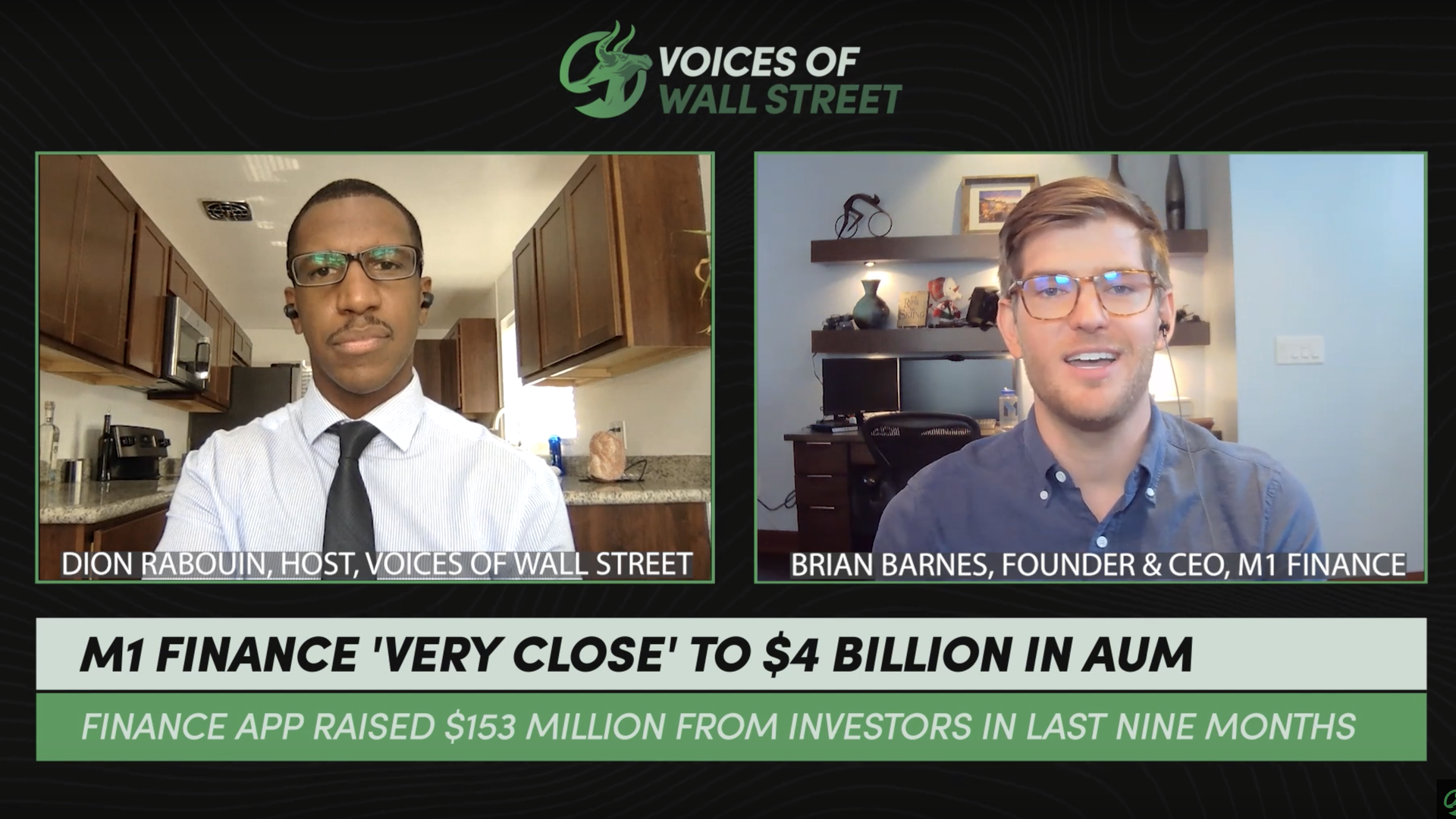| | | | | | | Presented By J.P. Morgan Wealth Management | | | | Axios Markets | | By Dion Rabouin ·Mar 23, 2021 | | Good morning! It's the one-year anniversary of the Fed announcing QE4ever! Where were you when you found out stock prices could only go consistently in one direction? - Was this email forwarded to you? Sign up here. (Today's Smart Brevity count: 1,164 words, 4.4 minutes.)
🎙 "It's not the having, it's the getting" - See who said it and why it matters at the bottom. | | | | | | 1 big thing: Investors win big on bounce from the bottom |  Data: FactSet; Chart: Andrew Witherspoon/Axios Axios Capital author Felix Salmon writes: For millions of American investors, it's been the best form of whiplash. We're now one year to the day from the stock market's low point — a year in which they more than recouped the stunning losses they saw in the late winter of 2020. Why it matters: Never before has the market swung so swiftly from extreme pessimism to extreme optimism. Over the past year, the S&P 500 has moved from being at a three-year low to rallying by an astonishing 76% and hitting new all-time highs. Flashback: The bottom, for the markets, came as the number of COVID-19 cases was still relatively small but rising exponentially, with no end in sight. The only way to prevent millions of deaths was to lock down economies around the world, bringing commerce to a halt and vaporizing trillions of dollars worth of economic activity. - The markets were in a tailspin, with the S&P 500 crashing by 34% in the space of just over a month. Only the bravest investors tried to catch that falling knife.
- Since then, the economy has bounced back from its locked-down state, the federal government has approved more than $5 trillion of stimulus — much of which went straight into the market — and the Federal Reserve has promised to do everything in its power to keep money loose and employment rising.
The big picture: Stocks have never risen so much in 12 months. The previous record was a 61% rise ending in June 1983. - The riskier the asset, the higher the return: Bitcoin has soared by almost 800% over the past year, with Tesla stock not far behind. Safe-haven investments like gold and Treasury bonds have fared much less well.
By the numbers: An investor with a broadly diversified portfolio of stocks and bonds would have seen $1,000 turn into $1,658 over the past year. - A highly risky bet of $500 each on Bitcoin and Tesla a year ago would be worth $8,221 today.
The bottom line: Americans with investments have done very well over the past year. For the millions of unemployed, however, many of whom have no investments at all, that will come as little comfort. |     | | | | | | 2. Catch up quick | | The White House is preparing $3 trillion worth of spending on infrastructure, universal pre-K, community college and climate that's expected to be broken up into two bills. (Washington Post) Fed chair Jerome Powell in testimony before the House Financial Services Committee today with Treasury Secretary Janet Yellen will note that the economic recovery has progressed more quickly than expected but that the Fed "will continue to provide the economy the support that it needs for as long as it takes." (Prepared remarks) A new study from Microsoft finds 41% of workers say they may quit this year, but business leaders are "out of touch." (Bloomberg) |     | | | | | | 3. Scoop: M1 Finance nearing $4B in assets, planning expansion |  | | | Screenshot: Check out my fly new kitchen! | | | | Fintech company M1 Finance is now "approaching $4 billion" of assets under management, the company's CEO tells me on the latest Voices of Wall Street podcast, nearly double what it announced in October. Why it matters: M1 is staking its claim as an alternative to the gamification of investing popularized by apps like Robinhood but also an alternative to traditional asset management shops like Fidelity and Schwab. By the numbers: The Chicago-based firm is growing at a bristling pace. The company announced a $75 million Series D funding round on March 9, revealing that it had grown to $3.5 billion in assets under management. - Having now reached "just under" $4 billion of AUM, as CEO Brian Barnes revealed on the podcast, the company has added close to $500 million in about two weeks.
Timeline: M1 was founded in 2015, reached $1 billion of AUM in February 2020, and has "4xed over the last 13 or 14 months," Barnes added. - The company also has grown from less than 100,000 funded customers to "over half a million" over the last year.
What's next: "We'll move into other forms of borrowing, whether that's mortgages, HELOCs, personal loans, auto loans," Barnes says. - "We're moving into the credit card space so that we'll be able to have higher rewards, higher spending limits, more personalized things."
|     | | | | | | A message from J.P. Morgan Wealth Management | | Level up your investing strategy | | |  | | | | Tap into 200 years of expertise and make smarter investing decisions when you partner with J.P. Morgan Wealth Management. Here's how: When you trade commission-free on the Chase Mobile app, you get access to timely investment research and insights, and a support team of real people. Learn more. | | | | | | 4. U.S. home sales decline but prices still rise double digits |  Data: National Association of Realtors; Chart: Axios Visuals Existing-home sales fell 6.6% in February from the previous month, but sales are still 9.1% higher than last year, per the National Association of Realtors. - Despite sales falling to a six-month low, the median existing-home sales price rose to $313,000, 15.8% higher than February 2020, with all regions posting double-digit price gains,
Between the lines: Housing inventory in February fell to a record low of 1.03 million units, down by 29.5% year over year — the fastest decline on record. - Properties typically sold in 20 days, which was also a record, NAR said, and homes with price tags between $250,000 and $500,000 were on the market for just 14 days.
The big picture: Rising mortgage rates are putting housing out of reach for an increasing share of the population, however dwindling supply likely means prices will continue to go up even as the rate of sales in the market declines. What to watch: Even with the housing market's sour turn to start 2021, most real estate economists are expecting it to be a banner year. - Lawrence Yun, NAR's chief economist, says he's forecasting this year's sales to outpace 2020's torrid pace, noting in the organization's press release accompanying the data that even after the pullback in February, "the market is still outperforming pre-pandemic levels."
- The Mortgage Bankers Association similarly is expecting record mortgage purchase originations at $1.57 trillion this year, a spokesman told me last week.
What it means: The housing market is looking a lot like the stock market. - While bullish industry analysts like to crow about reopening, vaccines and unleashed reserves, the market is actually being driven by wealthy investors who see few alternatives and are increasingly willing to park their cash in real estate as demand for assets with a real return far outpaces the supply, regardless of the price level.
|     | | | | | | 5. Chicago Fed's activity index is latest in trend of weak U.S. data |  Data: Investing.com; Chart: Axios Visuals The Chicago Fed's national activity index showed the U.S. economy at below-trend growth for the first time since April last month, and in fact, is suggesting a decline. Why it matters: In the midst of all the bullishness from economists, CEOs and money managers about 2021's expected breakout growth, the first quarter has been awfully bad based on hard data. What it means: The Chicago Fed's index seeks to answer the question, "Is the economy growing at a rate faster than its potential or slower than its potential?" using a weighted average of 85 existing monthly indicators of U.S. economic activity. - The index is composed of four broad categories of data: production and income; employment, unemployment and hours; personal consumption and housing; and sales, orders and inventories.
- It is constructed to have an average value of zero and a standard deviation of one.
Why you'll hear about this again: February's decline wasn't an aberration. The index saw negative readings for production as well as personal consumption and housing, and all four categories decreased from January. - The index's three-month moving average also turned negative last month.
|     | | | | | | A message from J.P. Morgan Wealth Management | | A partner to help you grow your wealth | | |  | | | | At J.P. Morgan Wealth Management, local advisors work with global experts to create smarter investing strategies for you. Why it's important: For over 200 years, J.P. Morgan has guided investors through every kind of market. And when it comes to your most important goals, experience matters. Learn more. | | | | Thanks for reading! Quote: "It's not the having, it's the getting." Why it matters: On March 23, 2011, the world lost icon Elizabeth Taylor, one of the most popular stars of classical Hollywood cinema, and the leading lady of leading ladies. | | | | Axios thanks our partners for supporting our newsletters.
Sponsorship has no influence on editorial content. Axios, 3100 Clarendon Blvd, Suite 1300, Arlington VA 22201 | | | You received this email because you signed up for newsletters from Axios.
Change your preferences or unsubscribe here. | | | Was this email forwarded to you?
Sign up now to get Axios in your inbox. | | | | Follow Axios on social media:    | | | | | |
No comments:
Post a Comment